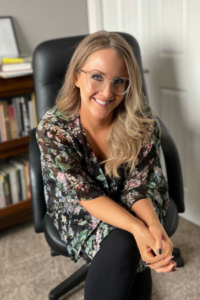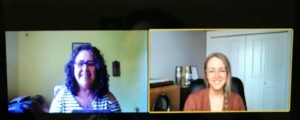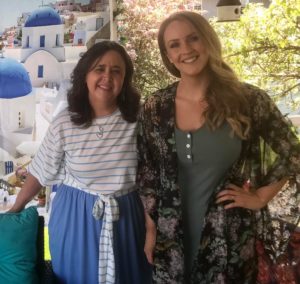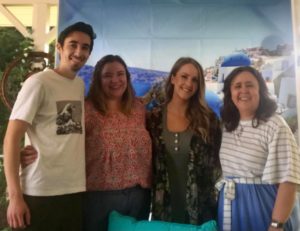
Ambiguity, Humility, and Lifelong Learning as a Counselor,
by Mychal Ferger, Gonzaga Master level Intern (February 2021)

Am·bi·gu·i·ty
noun
As I reflect on my time as an intern counselor, I remember the initial utterance of these words being met with a visceral response of panic, anxiety, and resistance:
“Embrace the ambiguity.”
The mantra was frequently repeated in Gonzaga’s Department of Counselor Education. I had no idea how relevant it would become.
When I began working with clients, I noticed a self-imposed pressure to be the “expert” in the room. After all, weren’t clients coming to me for clear-cut solutions, perfectly executed evidence-based therapeutic interventions, and rapid symptom reduction? I found comfort in a false sense of certainty and maintained this mindset for the better part of a semester before my perspective began to shift.
Through conversation, consultation, and modeling from my supervisor, I began to see the value in uncertainty, curiosity, and humility. I felt my fear shift to excitement as I realized the vast realm of possibilities and learning opportunities available to our profession. I discovered a sense of freedom as I became more comfortable with saying, “I don’t know – let’s explore.”
Being a graduate student during times of extreme ambiguity (COVID-19 pandemic), a tense political climate, and one of the largest civil rights movement in U.S. history only amplified the critical need for counselor adaptability, humility, and continuing education.
There is a growing body of evidence linking counselor humility to therapeutic effectiveness, as it increases the counselor’s ability to be open to feedback, take steps to self-correct, and seek intentional consultation/education/training (Ronnestad & Skovholt, 2013).
“At face value, humility may appear to be the opposite of expertise, but we argue that humility is foundational [for achieving clinical excellence].” -Joshua Hook, Cultural Humility: Engaging Diverse Identities in Therapy
Now, as I approach the final weeks of my internship, I feel an overwhelming sense of gratitude for the challenges and learning opportunities I’ve experienced during my time at Life’s Learning. I consider myself lucky to have served under a supervisor who embodies the very adaptability, tolerance for ambiguity, curiosity, and humility we strive for in this profession. Her passion for lifelong learning is contagious. Through her teachings, I’ve come to realize that ambiguity has the potential to be a catalyst to creativity and new learning – if we are open to embracing it.
My Takeaway, by Suzanne Apelskog, MS, LMHC of Life’s Learning, PLLC
I am posting this blog that Mychal so eloquently wrote just after she graduated. This was written in February of this year, yet what she has to say is important beyond any time period.
Mychal started her internship just a couple months before the Pandemic hit and then we had to move to online telehealth counseling, working from a single room in each of our homes. Her classes and interactions moved online as well. Being behind a computer for hours at a time, is not how she had anticipated her learning would ever go, nor that this would be how it looked a year later when she graduated.
I witnessed Mychal lean into ambiguity with all that she was doing from client care to her learning in a strange and new way. We often leaned on each other and I am so very grateful for that through such a difficult time.
My takeaway is that Mychal’s sharing has caused me to reflect deeper on this for myself, life and the profession of counseling. Mychal’s greatest gift is the warmth and humility of who she is. Embracing ambiguity is to know that life is not static. I liken it to a flowing river. It runs much smoother when we float with it, than if we try to paddle up stream against it. In life, we often go in with a plan and sometimes that plan changes, possibly even turning the boat we are in, quite metaphorically, upside down. We must take in what has occurred, work it through and then accept what is when we are ready to do so. Then we shift. In therapy, it is the same. We go in with a plan, with therapeutic tools in our toolbox (as many as we can muster as we grow and develop) and then we sit with people and follow what they need. This kind of ambiguity requires authentic humility and knowing how to “be with” those who are hurting. People rather appreciate when we meet them in this place, rather than as an all knowing “expert.” I am beyond grateful that this is Mychal’s take-away and I value her and her willingness to share this lesson with us.
References
Hook, J. N., Davis, D. D., Owen, J., & DeBlaere, C. (2017). Cultural humility: engaging diverse identities in therapy. American Psychological Association.
Ronnestad, M. H., & Skovholt, T. M. (2013). The developing practitioner: growth and stagnation of therapists and counselors. Routledge.


